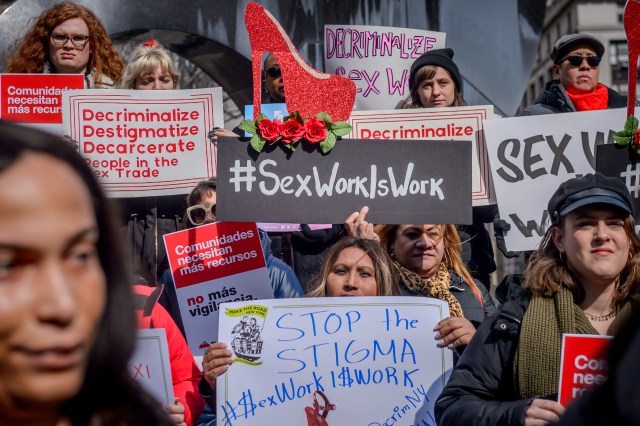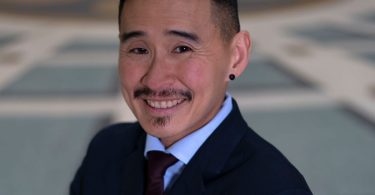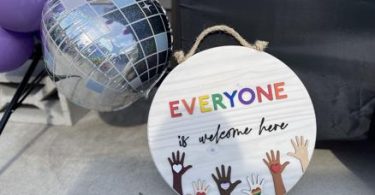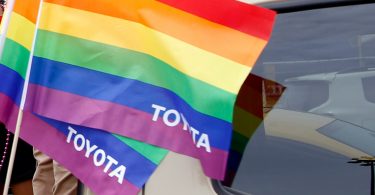LGBTQ+, immigrant rights, harm reduction and criminal justice reform groups, led by people who trade sex, launched 20+ organization coalition, Decrim NY, to decriminalize and decarcerate the sex trades in New York city and state. (Photo by Erik McGregor/LightRocket via Getty Images)
LGBTQ advocates and their allies are marching this month for equality, but a fierce debate rages within the community on how to best address human trafficking, support survivors and those impacted by the sex trade.
Many queer and trans individuals seek to legitimize their participation in the sex trade through fully decriminalizing prostitution across New York State, advocating for the removal of crimes of selling, buying and promoting sex from the criminal code. Progressives support them, believing distinctions can be made between consensual participants and those who are trafficked or coerced.
While I respect the autonomy of consenting adults to do what they want with their bodies, my story is one of neither agency nor consent. At 24, I was a victim of international and domestic human trafficking. As a survivor, a queer Mexican immigrant, and a person living with HIV, I understand the complex trauma of being forced and coerced into the sex trade against one’s will.
Our laws don’t clearly distinguish between trafficking survivors and consensual participants. These industries are inherently linked, with everyone ending up in the same marketplace of money for sex. It’s nearly impossible for sex buyers to discern between willing participants and those pretending to be in order to avoid a pimp’s beating. Even if they did know, proving it in court would be difficult, leading to zero legal repercussions for sex buying.
Decriminalization grows demand and expands markets. LGBTQ youth are already twice as likely to be sex trafficked as their non-LGBTQ peers. In a fully decriminalized world, pimps and traffickers will capitalize on this increased demand, ramping up their recruiting outside mental health treatment centers, youth homeless shelters, and wherever else vulnerable people congregate.
Trafficked minors would be harder to uncover as law enforcement would have no reason to investigate prostitution, reducing the incentive to inspect these markets for trafficking.
Full decriminalization endangers marginalized communities, including young people living in poverty and LGBTQ youth, who are overrepresented in homeless youth systems. The primary beneficiaries would be a consensual minority in the sex trade, and “empowered” sex buyers commodifying our bodies.
Any progressive argument is hard to see, given most sex buyers are white men purchasing the bodies of poor trans and cisgender women of color.
Exiting the sex trade is already very difficult, compounded by the mental health challenges, economic instability, bias and abuse that hinders stable employment. Should we tell our LGBTQ youth that “sex work” is a viable path out of poverty instead of aspiring to be social workers, doctors or teachers? Work implies choice. Is selling my body because I have no other avenues a choice?
Framing full decriminalization as empowerment is misleading and dangerous. It exploits the most vulnerable within the LGBTQ community under the guise of progressiveness and silences the concerns of queer survivors who’ve experienced trauma from the sex trade.
The solution to address the harms of the sex trade and support survivors is straightforward: accountability for sex buyers and stop arresting those being bought and sold. End the demand. If there were no buyers, sex trafficking wouldn’t exist. Let’s stop arresting those selling sex, often trafficking survivors, and focus on holding buyers and pimps accountable.
Full decriminalization advocates argue it ensures safety for those being sold, but that’s a desensitized argument that neglects the need for lifesaving social services to support survivors and those without choices can break free from exploitation.
The Sex Trade Survivors Justice & Equality Act (STSJEA), sponsored by state Sen. Liz Krueger and Assemblymember Pamela Hunter, is the answer. This bill is based on a model that’s been proven to shrink the sex trade and drastically reduce human trafficking in multiple countries. It helps survivors exit the trade through access to housing placement, health care, legal and mental health services.
Our legislative leaders in Albany face a crucial decision — protect survivors and prevent human trafficking, or turn New York into a brothel state, drastically increasing the number of vulnerable young people bought and sold.
This Pride Month, let’s truly honor the spirit of equality and protection for all members of our LGBTQ community by rejecting policies that endanger our most vulnerable. Normalizing the buying and selling of queer bodies isn’t queer liberation, it’s sentencing our queer communities to oppression.
Eduardo is a survivor leader at New Yorkers for the Equality Model (NYFEM) and Mujeres en Resistencia.







